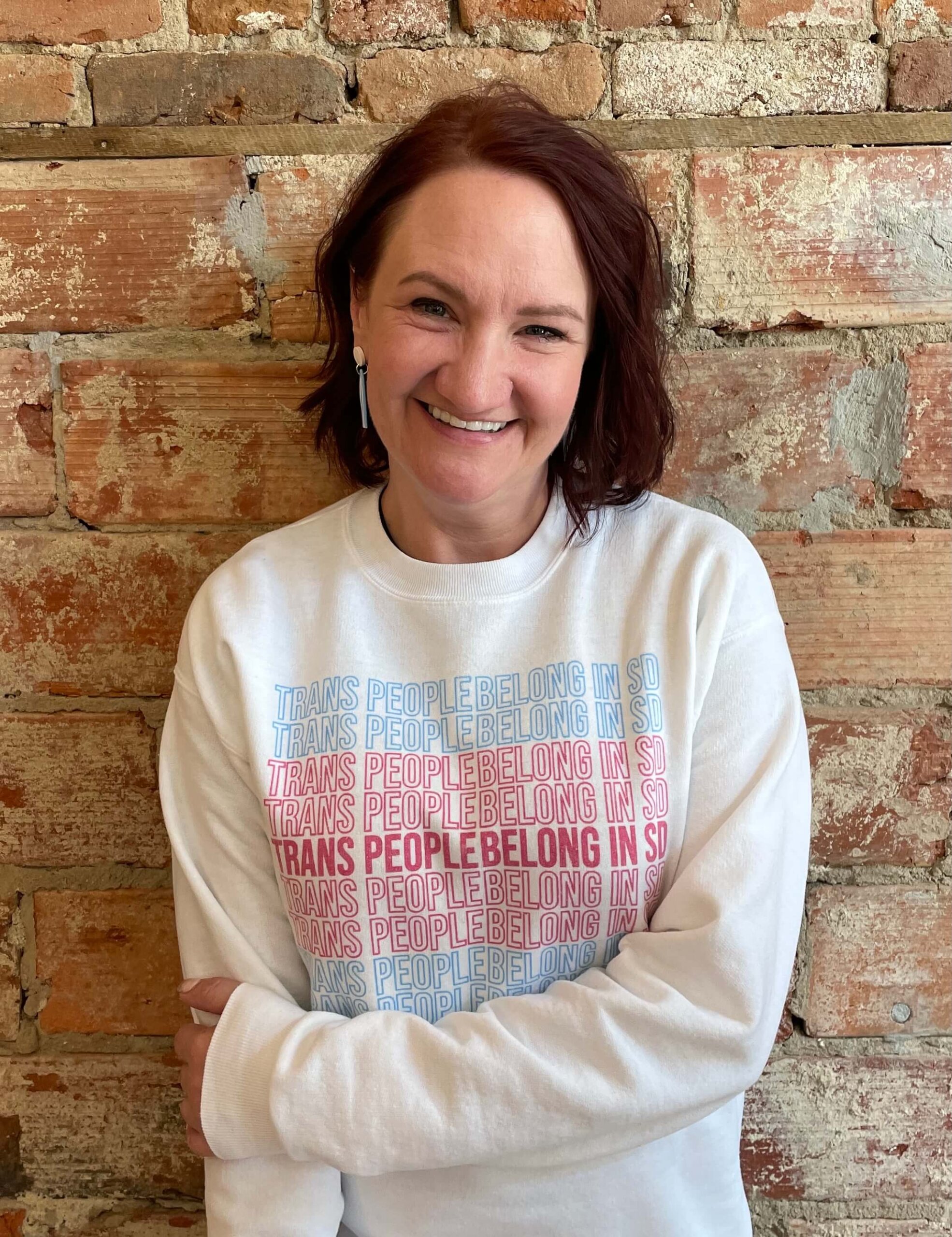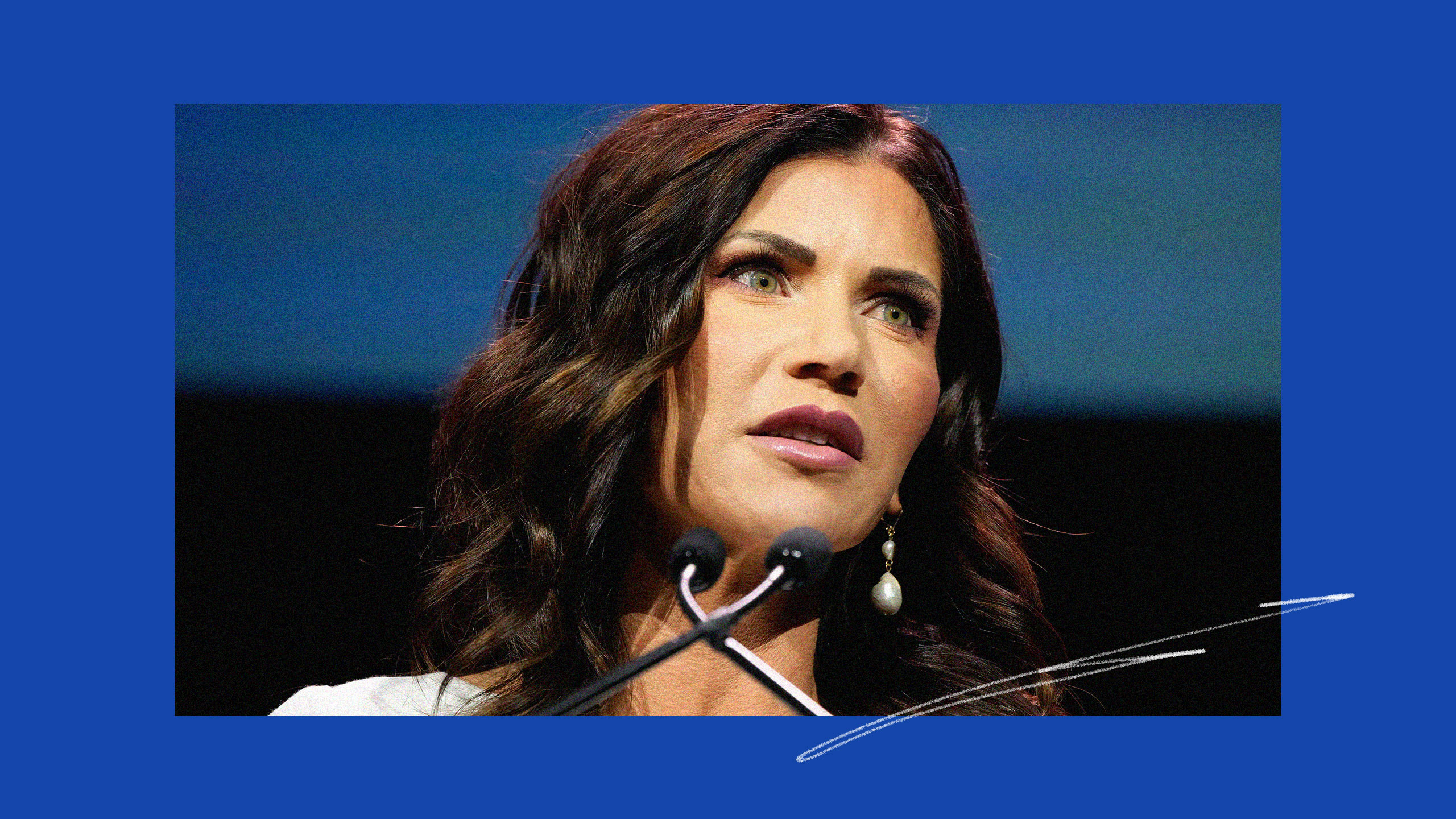Susan Williams had just started her Christmas shopping the day South Dakota Gov. Kristi Noem announced new legislation targeting trans student athletes.
Williams is the executive director of Transformation Project Advocacy Network (TPAN), a South Dakota grassroots organization focused on lobbying efforts to oppose transphobic legislation. The group has had a busy year: Noem, a Republican, vetoed a trans sports ban in March following a tense standoff with GOP lawmakers over her concerns regarding the bill. Facing criticism from members of her party, she signed a largely symbolic pair of executive orders instructing the state’s Department of Education and Board of Regents to draft their own by-laws preventing trans kids from playing sports.

Credit: Courtesy of Susan Williams
Given that the South Dakota Legislature doesn’t reconvene until Jan. 11, Williams thought she would have a few weeks to prepare before she fought this battle again. But when a friend sent her an article informing her that Noem was already pushing another anti-trans sports bill, her hopes for a peaceful, relaxing holiday spent with friends and family soon deflated. Here we go again, Williams thought.
“Today has been pretty stressful,” she tells Xtra over the phone, in between shopping trips. “A lot of people texting and calling, emails to return: Did you expect this? What are we gonna do? Oh my gosh, it’s starting already. It’s not even Christmas, so it’s been a little bit stressful and overwhelming.”
The draft legislation that Noem published on Dec. 14 takes particular aim at trans girls participating in K-12 and collegiate athletics. Entitled “Protecting Fairness in Women’s Sports,” the proposed bill states that “only female athletes, based on their biological sex, may participate in any team, sport, or athletic event designated as being for females, women, or girls.” The two-page document defines an athlete’s sex by the birth certificate “issued at or near the time of the athlete’s birth,” thus precluding the possibility that trans female athletes could play in alignment with their lived gender if they had corrected documentation.
But unlike legislation signed into law in the majority of states that have passed similar bills, Noem’s proposal applies to both trans boys and trans girls. It states that all school sports teams must be designated as single-sex based upon biology, unless they are co-ed. Such a policy would then force students like Mack Beggs, a trans male wrestler who won consecutive women’s titles in Texas, into girls’ sports.
In a statement accompanying the draft, Noem claimed that her goal is to “defend fairness in girls’ sports at both the K-12 and collegiate level.
“Every young woman deserves an equal playing field where she can achieve success, but common sense tells us that males have an unfair physical advantage over females in athletic competition,” she said on her website. “It is for those reasons that only girls should be competing in girls’ sports. Women have fought long and hard for equal athletic opportunities, and South Dakota will defend them, but we have to do it in a smart way.”
“Nobody wins when politicians try to meddle in people’s lives like this.”
The proposal was met with immediate criticism from local and national LGBTQ2S+ groups. Jett Jonelis, advocacy manager for the American Civil Liberties Union (ACLU) of South Dakota, said the governor’s actions are “clearly fuelled by a fear and misunderstanding of transgender people in our state” and suggested the draft bill is unconstitutional.
“Nobody wins when politicians try to meddle in people’s lives like this,” Jonelis said in a statement. “Nobody wins when we try to codify discrimination like this. Legislation like Noem’s proposed bill has been discussed and defeated before. It’s time to move on.”
If signed into law, Noem’s draft bill would be the ninth trans sports ban enacted since the beginning of 2021, following states like Alabama, Florida and Texas. It could tee up a series of messy lawsuits—not only those likely to be filed against the state by LGBTQ2S+ advocates but against school districts themselves. The text as written allows cisgender students to file for “injunctive relief and any other equitable relief available under law” if they are forced to compete against a trans athlete in their sport.
Amy Rambow, president of the community support group Watertown Love, says she’s “sad and angry” to see history repeating itself in South Dakota. When we spoke over the phone on Tuesday evening, she hadn’t yet told her trans child Lex, who is 17, about the proposal because she didn’t want to ruin what was supposed to be a nice week. This Thanksgiving marked the first time during the pandemic that she was able to gather with her family, and Rambow wanted their first Christmas together in two years to feel extra special. But she says it feels like the governor is “stealing that joy of this season.

Credit: Courtesy of Amy Rambow
“I’m pissed off,” Rambow tells Xtra. “I’m completely pissed off right now. We’ve got our booster shots, and my joy should be that we are together. Now it’s like, ‘I’ve got to think about my next step. Who do I email? Who do I talk to?’”
But perhaps the bigger question Rambow says she has been left with is: “Why now?” It’s a question that has been on the minds of LGBTQ2S+ advocates across South Dakota; it’s highly unusual for the governor to introduce a draft bill ahead of the legislative session, especially so publicly. Williams says she can’t remember any anti-trans bill being pre-filed in the four years that she’s been advocating for trans youth. What’s more, Noem’s contributions weren’t necessary: the author of this year’s vetoed anti-trans sports bill, State House Rep. Rhonda Milstead (R-9th District), is reportedly preparing to introduce another in 2022.
Williams believes there’s a political motivation behind Noem authoring her own bill and getting it out early. The governor is facing a primary challenge this year from State Rep. Steven Haugaard (R-District 10), South Dakota’s former House speaker, who was critical of her veto on the trans sports ban.
“It affects me on a personal level because I know the trans kids and the trans adults in South Dakota that these kinds of bills affect,” Williams says. “I know how horrible it is for them to have to live in a state where they are used as political pawns every year. I will do everything in my power to protect them and fight for them. That gets me through any of the more challenging times.”
But no matter why Noem has chosen to start this fight now, LGBTQ2S+ advocates in South Dakota say they’re ready. As she juggles phone calls to local lawmakers with putting up Christmas decorations, Rambow remembers why she created Watertown Love: to make sure there was somewhere in South Dakota that queer and trans youth felt safe. After a young person in her small town of 22,000 took their own life, Watertown Love group began organizing picnics and eventually Pride events, hoping to build community in unlikely places.
As someone who grew up in South Dakota and moved back to start a family, Rambow holds onto hope that these small-scale efforts can lead to greater transformation. “Anger feeds passion, and passion feeds change,” she says. “If that anger is used correctly, you can change the world with it, but you just can’t let it consume you.”


 Why you can trust Xtra
Why you can trust Xtra


